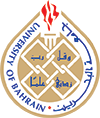Micro-credentials
About
Micro-credentials are intentionally designed to be smaller in scope compared to minors or degrees, with a focused emphasis on specific skills and competencies. Micro-credentials serve as valuable tools to assist students in achieving their academic and career aspirations while enabling them to stand out in a highly competitive job market. These credentials explicitly outline the skills and competencies mastered by students, providing a clear demonstration of their expertise.
What are Micro-credentials
- Focus on acquiring skills to meet the needs of employers and/or industries.
- Offer both credit-bearing and non-credit bearing options.
- Designed to be flexible and fast in meeting industry demands. They provide flexibility and expedited skill acquisition to individuals seeking targeted and current knowledge and competencies.
- Allow learners to choose the level of recognition and academic credit.
- Be recorded on official transcripts or records (digital badges) are issued upon successful completion.
- Enhance credibility and recognition of learners’ achievements.
- Designed either individually or collaboratively by a department(s), college(s), center(s) or other unit(s) authorized to offer degree programs and collaboration with external partners.
- Comprised of courses, but may also include non-course curricular requirements (such as completion of portfolios and certification exams)
Micro-credential Types
The University administers and offers two types of micro-credentials:
Credit bearing micro-credentials
Upon successful completion of all assessment requirements for a credit bearing micro-credentials students will receive the full credit allocation equivalent to the originating course(s). Credits earned from this will be recognized on official transcripts and may be counted towards degree programs at the University of Bahrain.
Non –credit Bearing micro-credentials
UOB’s non-credit bearing micro-credentials validate skills acquired through professional learning or non-formal learning experiences including continuing education, workplace training programs, personal interests, or community initiatives. By offering a range of micro-credentials, the university meets the dynamic demands of learners and industries, fostering a culture of lifelong learning and skill development.

Stackable Micro-credentials
The stackable micro-credential is a part of a sequence of individual micro-credentials that can be accumulated to enhance an individual’s qualifications and support their career progression and further education.
For example, if we would like to offer a new stackable certificate entitled “Cyber Security Specialist” This certificate would offer a progressive pathway for enhancing qualifications in the field of cyber security. It consists of three courses, each carrying three credits, building upon one another to impart comprehensive knowledge and skills:
- MICROIT1001 Fundamentals of Cyber Security: Establishes foundational concepts with a focus on depth and learning.
- MICROIT3001 Protection of Information Assets: Delves deeper into safeguarding against cyber threats, providing further depth and learning.
- MICROIT5001 Advanced Cyber Security: Explores advanced topics such as secure coding, ethical hacking, and digital forensics, offering the highest level of depth and learning.
This stackable micro-credential exemplifies the concept of stackability, with each course contributing three credits that reflect the depth and level of learning involved. These credits can be applied towards a Bachelor of Science (BSc) in Cyber Security program offered at the College of IT.
Credit Transfer to UOB Program
Students who have achieved a micro-credential or a stack of micro-credentials can request to transfer their credits to the UOB degree program.
UOB micro-credentials, which are primarily designed as pathways to earning degrees, must indicate a specific credit value to be transferred to the degree program.
It is important to note that being eligible for or receiving credit towards a UOB program does not guarantee that the credit will count towards the completion of the program. Students must fulfill the requirements of the approved program they wish to transfer the credits to.
Minimum Grade Requirements for micro-credential Stacks.
- Micro-credentials are structured as competency-based stacks, and therefore, undergraduates must earn a minimum grade of C or higher in all courses that count toward the micro-credential stack.
- For postgraduate micro-credentials, students must achieve a minimum grade of B or higher in all courses that contribute to the micro-credential stack to be eligible for credit transfer within their academic program.
Digital Badges for Incomplete Degrees
-
- In cases where students are unable to graduate with their degree due to an overall GPA falling below the undergraduate minimum of 2.0 or the graduate minimum of 3.0, they can earn badges for successfully completing micro-credential stacks.
- To qualify for badges, students must have attained the minimum required grade or higher in all courses included in the micro-credential stack.
Target Audience
Given the wide range of potential uses for micro-credentials, there are several different potential target audiences:
- Current students
- Prospective students
- Adult learners
- Alumni
- Business/Industry partners/ Education Institutes
- High school students
- Educators
- Community partners
- Faculty/staff
- Professionals
Course Design
Micro-credentials at UOB designed, developed, and delivered to ensure the highest quality and currency of educational offerings.
- Reflect UOB’s dedication to delivering high-quality alternative educational opportunities to learners and the broader community.
- Designed and developed with a focus on addressing skills gaps in relevant industries or disciplines, incorporating discipline-specific expertise and pedagogical rigor. This ensures that learners acquire the necessary competencies and knowledge to meet the evolving demands of the workforce and contribute effectively to their respective fields.
- Foster partnership pedagogy, encouraging collaborations and meaningful engagement with external stakeholders, including industry experts and organizations. This facilitates the incorporation of practical industry perspectives and enhances the applicability of acquired skills.
Delivery Mode
A micro-credential may have more than one mode (face-to-face, online, blended), if different learner groups require a different learning pathway through the micro-credential. Providers offer flexibility in approach, allowing the learner the option to study or train via whichever means of delivery is best suited to when, where, and what students or trainees are learning and their personal circumstances.
Assessment
- To receive a credit-based micro-credential verified certificate, a student must demonstrate attainment of the learning outcomes through completion of assessment.
- Assessment tools and activities must be specified for each component of the micro-credentials, and:
- focus on the learning outcomes.
- Enable accurate decisions to be made about learner achievement.
Certificates
- Micro-credential digital badges, certification and transcript is managed by Deanship of Registration.
- On successful completion of assessment, a certificate will be awarded in the form of a digital badge or/and certificate and/or will be shown in a transcript.
- Each digital credential must contain sufficient information to ensure that the learning the participant has achieved is appropriately described.
